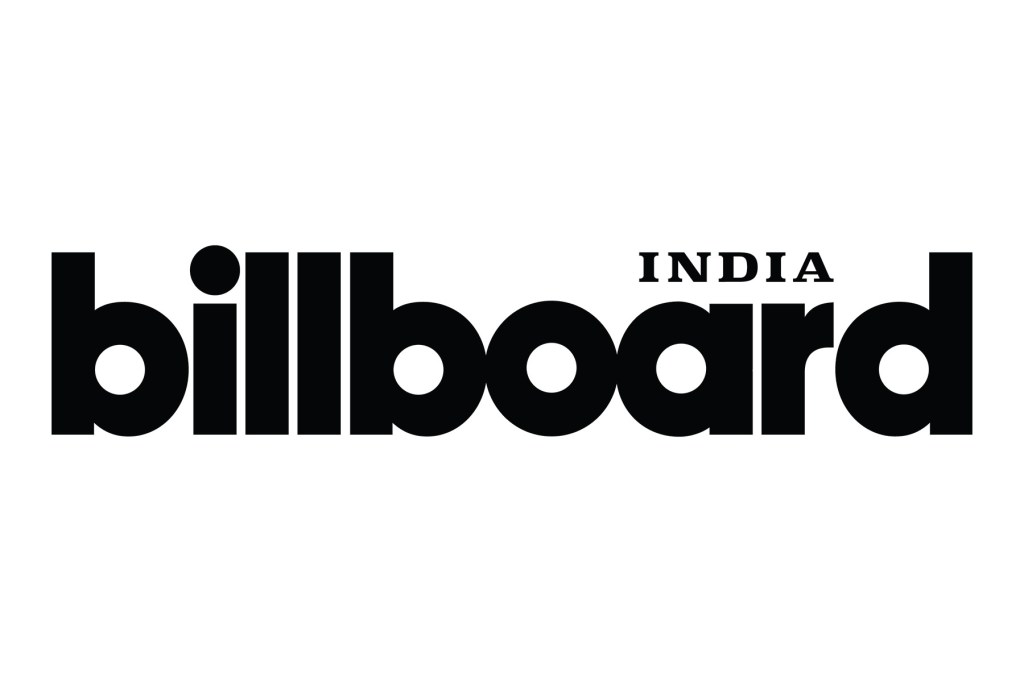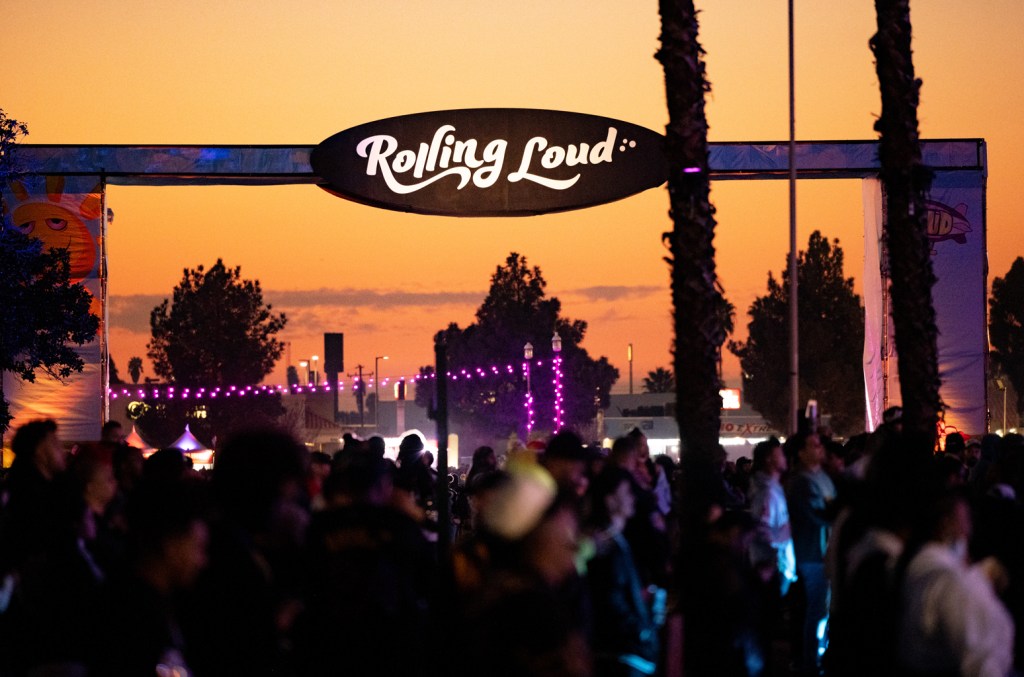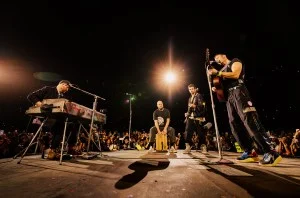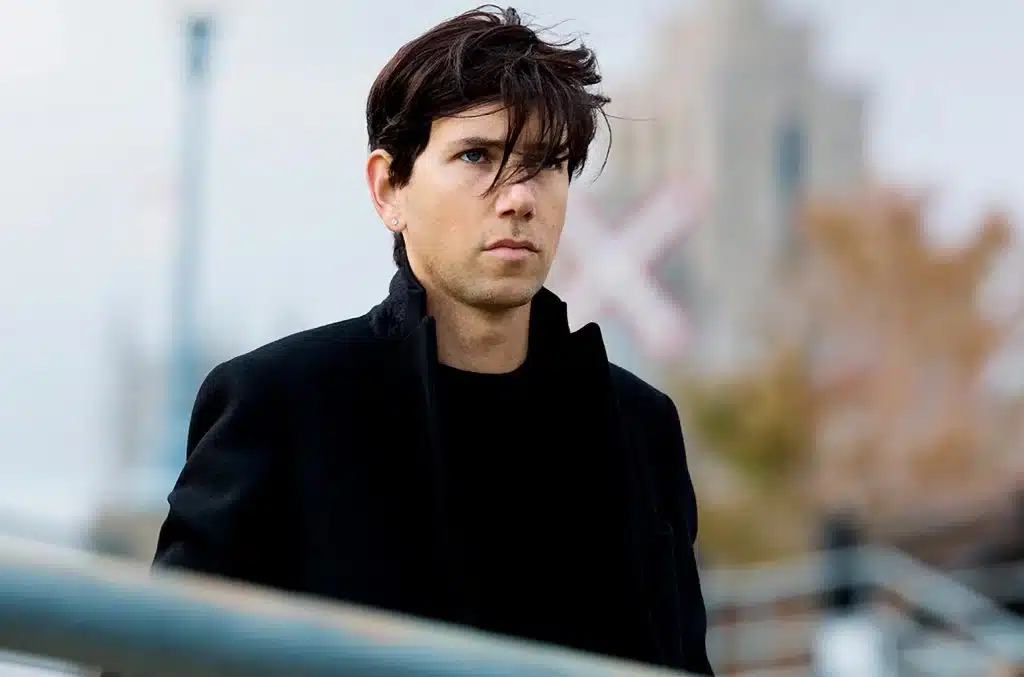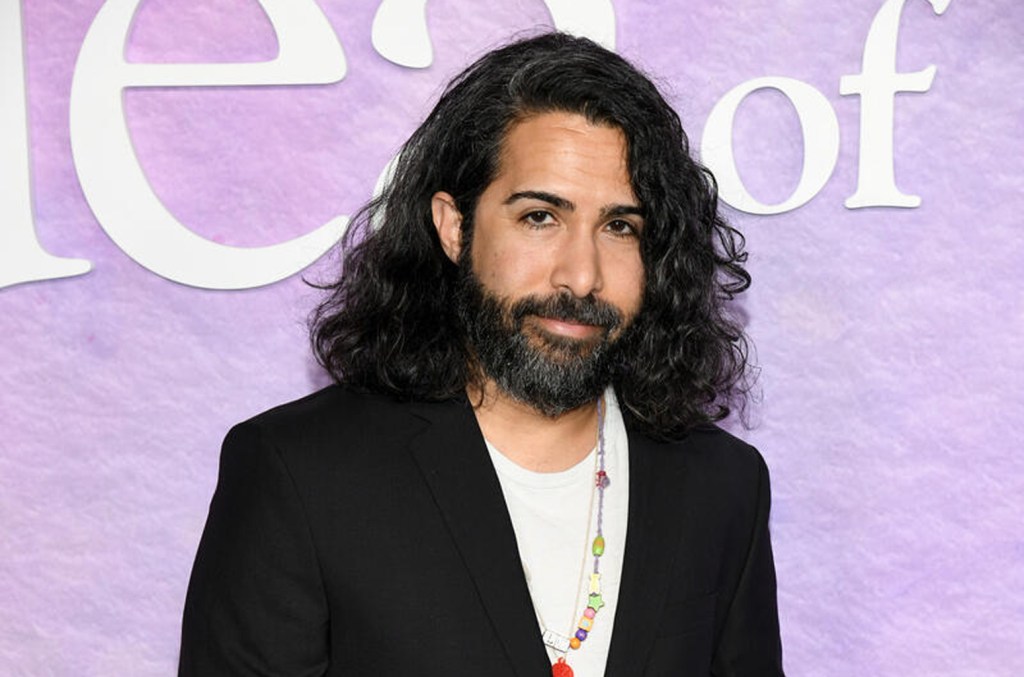india
Trending on Billboard On Monday (Nov. 3), Billboard announced the launch of Billboard India to serve one of the world’s most rapidly growing music markets and showcase its talent to the world. In partnership with Other Side Ventures Pvt. Ltd., Billboard India will debut a host of offerings, including Billboard’s iconic charts, lists, music awards, […]
An Air India flight bound for London crashed Thursday morning (June 15) in a residential neighborhood, with a reported 242 passengers on board, including the flight crew. Details are still developing, and images of the crash have spread through various media channels as officials on the ground examine the wreckage.
According to still-developing reports from CNN and the Associated Press, the Boeing 787-8 was heading to London’s Gatwick Airport, with 169 Indian nationals, 53 British nationals, seven Portuguese nationals, and one Canadian on the flight. The crash occurred in the city of Ahmedabad in Gujarat State. Initially, Indian authorities reported that all passengers aboard the plane perished in the crash. Al-Jazeera is reporting that 204 people were killed and that hospitals in the region were taking in injured passengers.
Vishwash Kumar Ramesh, a British national visiting family in India, told The Hindustan Times that he was a passenger aboard Flight 171 and heading back to London with his brother. Ramesh says that there was trouble around 30 seconds into the flight. Video clips that have spread widely on social media support Ramesh’s account, as it appeared the plane struggled to achieve proper lift before slamming into the side of a building.
As this breaking story develops, we will return with more updates.
—
Photo: Anadolu / Getty
HipHopWired Featured Video
Rolling Loud is headed to India. The hip-hop festival – which already has editions in California, Florida and Thailand – will debut its first festival in Mumbai after bringing the signature event to eight other countries. The two-day festival will be exclusively ticketed and produced in partnership with District by Zomato, a discovery and booking app.
“We never imagined Rolling Loud would take us all the way to India — it’s incredible,” Rolling Loud co-founders and co-CEOs Matt Zingler and Tariq Cherif said in a joint statement. “The hip-hop scene in India has been booming, and bringing the festival to Mumbai felt like the right decision. We’re excited to create a space where Indian fans can celebrate the artists they love, while also introducing international acts to a new audience. For us, it’s always been about building community through hip-hop — and we can’t wait to experience how India shows up.”
The two-day festival in India — which will announce dates and venue at a later time — will feature two distinct stages with elaborate production, plus fans can enjoy a series of local food and drink options, art installations and experiential activations that all tie back to the celebration of global and Indian hip-hop culture. Rolling Loud India promises a spotlight on an array of global superstars and international talent and top and rising Indian hip-hop artists.
Trending on Billboard
“India’s hip-hop scene is on fire right now, it’s raw, it’s real, and it’s ready. Rolling Loud coming to India isn’t just another festival drop; it’s a cultural shift,” District by Zomato CEO Rahul Ganjoo said in a release. “For years, we’ve felt the need to bridge India’s sound with the global stage, and this is that moment. It’s bigger than music, it’s a loud, undeniable signal that Indian hip-hop is here, it’s global, and it’s got something to say. We’re proud to bring this home.”
Since the event was founded in 2015, Rolling Loud has held festivals in New York, Miami, Toronto and Los Angeles, as well as in Australia, Germany, Portugal, The Netherlands, Thailand and Austria. Rolling Loud lineups throughout the last decade have included Kendrick Lamar, Nicki Minaj, Future, Travis Scott, A$AP Rocky, Cardi B, Playboi Carti and more.
Rolling Loud India tickets will go live exclusively on the District app. For more information on talent lineup, ticket details, festival details and more, check the District app and @districtupdates page on Instagram.
Delhi, a city of 34 million people, was the obvious setting for Indian pop star Diljit Dosanjh to open his home-country tour last October — and he quickly sold out Jawaharlal Nehru Stadium and added a second date. But after that, Dosanjh wanted to plunge deeper into India, performing in Lucknow, Indore, Guwahati and other areas with a mere 1 million to 4 million residents. “We actually got to cities where there wasn’t any big concert, ever,” says Sonali Singh, Dosanjh’s business manager and tour producer. “When we started off, it was kind of an experiment.”
Dasanjh’s tour, which sold 200,000 tickets across its initial 10 venues in less than 10 minutes when it went on sale last September, showed not only the Punjab native’s star power but the massive potential of India as a concert market. In January, Coldplay broke a global attendance record with 223,000 fans at two shows in Narendra Modi Stadium in Ahmedabad, Gujarat, India; in February, Ed Sheeran closed a six-city tour of the country with 120,000 ticket sales. (By contrast, Zach Bryan sold out the biggest stadium in the U.S., Michigan Stadium in Ann Arbor, Mich., with 112,000 tickets for a show this coming September.)
Trending on Billboard
“We are at the cusp of hockey-stick growth, as far as this market is concerned,” says Naman Pugalia, chief business officer of live events for BookMyShow, the Indian entertainment platform that promoted the Sheeran dates with AEG.
For decades, India’s demand for large music concerts has outstripped its capacity: Led Zeppelin’s Jimmy Page and Robert Plant, and The Police, played what Rolling Stone India called “niche, often low-key shows” in Mumbai in the ‘70s and ‘80s, in part because local officials considered Western music “anti-Indian.” Although local bands played hotel clubs and pubs and developed rock scenes in Mumbai and elsewhere over the years, it wasn’t until the early 2010s that promoters put on larger electronic dance music, blues and rock festivals, such as the Bacardi NH7 Weekender (at a Pune wedding venue) and the VH1 Supersonic (on a beach in Goa). By 2017, Justin Bieber was playing to 56,000 fans at a Mumbai stadium.
Coldplay perform at Narendra Modi Stadium on Jan. 25, 2025 in Ahmedabad, India.
Anna Lee
A 2024 BookMyShow report suggests India’s international concert market of 1.4 billion people is no longer untapped — live entertainment grew 18% compared to the previous year, live events in “Tier 2” cities such as Kanpur and Shillong grew 682%, and more than 477,000 fans traveled to shows outside their hometowns. In March 2024, after Sheeran sold out Mumbai’s Mahalaxmi Racecourse (which BookMyShow had helped revitalize into a large-scale concert venue), the British singer-songwriter asked his team to return this year and “go deep into India and cover as much ground as possible,” according to Simon Jones, senior vp of international touring for AEG.
That was a challenge. “Landing a spaceship in the middle of nowhere in India is tough, and it’s not the same as doing it in America, Europe or even South America,” Jones says. “But the infrastructure in India is certainly getting a lot better, and the country, in terms of its touring future, will be very, very different in five years’ time, and especially 10 years’ time.”
In recent years, stars such as Post Malone, Imagine Dragons and Dua Lipa have sold out shows in the country; Lollapalooza India reportedly drew 60,000 fans in 2023, and a rep for promoter Live Nation said the 2025 festival last month, starring Green Day and Shawn Mendes, scored its highest attendance ever. Cigarettes After Sex sold out two large India shows in January; Guns N’ Roses will perform at Mahalaxmi Racecourse next month; and Travis Scott plays Delhi in October.
The recent concert boom is due, in part, to the boom in India’s middle-class population over the last two decades. “India’s disposable income is growing day by day, and the audience is seeking more experiences to spend their money on,” says Bhavya Anand, manager of rapper King and co-founder of talent agency Bluprint. “We see that there will eventually be a lot of clout in ticket buyers — but it’s also scary, because it’s not possible for everyone to attend everything.”
Since the pandemic, social media platforms such as Snapchat and Instagram have taken off in India, and residents have been “going out with a vengeance,” according to Jay Mehta, managing director of Warner Music India and SAARC. As recently as 2018, he adds, international touring artists were largely limited as far as how many fans they could draw — Bryan Adams, a huge regional star who has played India since the ’90s, sold out a Mumbai concert with just 10,000 people that year.
But promoters have been methodically building production systems and ticket-selling technology to prepare for an expected entertainment boom. Since then, governments have become more sophisticated in adapting cricket stadiums and other large venues to concerts and providing public transportation. “There were a lot of struggles, from bureaucracy to permissions,” Mehta says. “In the past, the production costs were so high, you’d have only 10,000 people coming, you’d have a massive loss.” More recently, he adds, promoters who’ve “gone through this pain for the last 10 years finally enjoy the fruits of the concert ecosystem.”
One of those early companies was Only Much Louder, a 22-year-old promoter that initially focused on concerts and managed Indian music stars but has shifted into comedy and other non-music entertainment. Until recently, says Tusharr Kumar, the company’s CEO, it was impossible to fund large concerts without significant corporate sponsorship, but given newly built stadiums and arenas, as well as prominent financial successes such as Coldplay’s shows and the Dosanjh and Sheeran tours, that is starting to change. “We’ve been having so many conversations: ‘Did we exist at the wrong time? Because it’s suddenly getting interesting in India.’ It feels good to know all the hard work we did back then is paying off in a big way.”
From a concert-business point of view, India still has work to do, regional sources say. The country’s club circuit remains modest, with electronic-music stars such as Kasablanca and MissMonique as top headliners, due to low production costs, compared to full bands. And while Dosanjh’s 2024 success speaks to the potential for country-wide touring, and India is producing global stars such as King and singer-rapper Karan Aujla, the biggest artists still tend to do just a date or two in big cities like Mumbai and Delhi. “We’ve just had the initial spark,” Warner’s Mehta says. “Imagine once we see the complete picture.”
BEAT Music Fund, the dance music investment company from Armada Music Group, acquired the rights to “a large portion” of masters from DJ, producer and Turbo Recordings founder Tiga. The deal includes Tiga’s “Sunglasses at Night,” “Bugatti,” “You Gonna Want Me,” “Let’s Go Dancing” and “HAL” featuring Kölsch. BEAT previously signed catalog deals with Kevin Saunderson, Markus Schulz, Robbie Rivera, Jax Jones, Amba Shepherd, VIVa MUSiC, Sola Records, King Street Sounds, Chocolate Puma and others.
Hook, the AI-powered platform that allows users to legally remix songs by top artists while earning income from those remixes, closed an additional $3 million in funding, bringing the startup’s total funding to $6 million. This round includes new investments from Khosla Ventures, Kygo‘s Palm Tree Crew, and The Raine Group. Continued support came from existing investors including Imaginary Ventures, Steve Cohen‘s Point72 Ventures, KSHMR and Edgar Bronfman, Jr.‘s Waverley Capital. The investment will help accelerate Hook’s marketing efforts and hiring, with a focus on user acquisition.
Trending on Billboard
Japanese record label Teichiku Entertainment signed a distribution partnership with Believe for Japan and the rest of the world. Through the deal, the companies aim to expand Teichiku’s digital footprint by leveraging Believe’s global DSP network, technology and digital-first expertise to bring Japanese enka, kayōkyoku and pop music to a wider audience globally.
Indian record label and music publisher Times Music acquired Indian regional record labels Symphony Recording Co. and ARC Musicq. These are Times Music’s first acquisitions since Primary Wave Music invested in the company to speed up its growth worldwide. Symphony, described in a press release as “the undisputed leader of Tamil spiritual and devotional music,” has a catalog of more than 350 audio and 100 video albums and boasts YouTube views of nearly 2 billion, with revenue on the platform doubling in the past four years, according to the release. ARC Musicq, which has been distributed by Times Music since 2017, is a label specializing in Indian folk music and film soundtracks within the Kannada music market. ARC also boasts more than 2 billion views on YouTube, with revenue quadrupling in the last three years, according to the release.
Independent U.S.-based K-pop label hello82 struck a partnership with One Hundred Label, the Korean entertainment company behind THE BOYZ. Under the deal, hello82 is serving as the exclusive physical distributor for the group’s album Unexpected, which was released on March 17. To support the release, hello82 is erecting immersive fan experiences at its brick and mortar fan spaces in Los Angeles and Atlanta, and at pop-up shops in major markets including New York, Chicago and San Diego throughout March. Hello82 previously signed similar deals with KQ Entertainment (ATEEZ, hikers) and FNC Entertainment (P1Harmony).
Ninja Tune struck a licensing partnership with Reactional Music, the music personalization platform allowing real-time interactive music integration in gaming, automotive and digital environments. With the deal, Ninja Tune’s labels and publishing division, Just Isn’t Music, have licensed the rights to tracks from its catalog for use in Reactional’s music personalization engine and music delivery platform. Ninja Tune’s labels include Brainfeeder, Counter Records, Technicolor, Big Dada and Foreign Family Collective, which have collectively released music by Thundercat, Bonobo, Little Dragon, Run the Jewels, ODESZA, Peggy Gou and others. Reactional’s platform is now live on Unity and Unreal Engine. It is being used by developers and creators in Europe, the United States, China and Southeast Asia.
ADA, the independent music distribution and artist services arm of Warner Music Group (WMG), acquired music tech startup RSDL.io, which provides automated accounting and a simplified view of multiple revenue streams for artists and labels. Founded by tech executives Mike Holmes, Jim Sella and Bill Sella and music industry players Alex Brahl (S7 Management) and songwriter-producer Shep Goodman, RSDL.io lets users facilitate payments and manage splits and recoupments and “allows for multi-level artist and contributor payout functionality and insights,” according to a press release.
EMPIRE struck a multi-year partnership with sound separation and lyric transcription technology company AudioShake under which the San Francisco-based label will use AudioShake’s stem and lyric separation technologies to create stems and lyrics for its catalog. EMPIRE will use AudioShake’s AI to produce stems for use in synch licensing, immersive formats and new music licensing models.
Musical AI, the AI rights management platform for music and audio, is partnering with Nashville-based artist-model platform and VST plugin First Rule to build fully-licensed AI agents and models designed to support music makers. Through the deal, Musical AI will provide licensed training data to First Rule, which will use the data to train musical agents and models aimed at assisting artists and producers. Musical AI will also provide attribution technology and payment processing “to ensure First Rule can prioritize rightsholder consent, credit, and compensation,” according to a press release. Using this data, First Rule will train its proprietary models to ensure they are able to produce high-quality results. This will allow artists and producers to train their own “Musical Essence or M.E Models on their distinctive style and approach,” then license those models to others to use in First Rule’s Co-Writer, a generative AI-powered VST plugin the company is currently building that will work in any digital audio workstation.
Sony Music Entertainment India and Tiger Baby — the Indian production company formed by filmmakers Zoya Akhtar and Reema Kagti — formed Tiger Baby Records, a joint-venture music label dedicated to fostering emerging talent. For one of its first projects, the new label has partnered with jewelry brand Tanishq for a wedding song composed by Abhishek-Ananya and performed by Poorvi Koutish. It also recently released the soundtrack for Superboys of Malegaon, a film based on the life of filmmaker Nasir Shaikh, that was composed by Sachin-Jigar and written by Javed Akhtar. Tiger Baby Records will additionally release original music curated by Ankur Tewari that will spotlight emerging artists and launch a “City Sessions” initiative with Mumbai’s Island City Studios in which singer-songwriters will be offered the opportunity to refine their craft, collaborate with established artists and more.
Universal Music Group (UMG) and HEAT — a new marketplace connecting animators, game developers and 3D artists with a trove of motion data and music — formed a collaborative initiative involving Lil Wayne and CG5 that will make licensed tracks from both artists available to game developers for the first time. Beginning May 1, Lil’ Wayne tracks “Uproar” and “GO DJ” and CG5 tracks “I See A Dreamer,” “Sleep Well,” “Let Me In” and “Dancin’” will be available through the HEAT platform, allowing game creators to integrate those tracks into their projects.
Secretly Distribution struck a global distribution deal with Invada Records, a U.K.-based independent label co-owned by musician, producer and composer Geoff Barrow (Portishead, BEAK >) and his longtime business partner Redg Weeks. Invada has released music by artists including DROKK, The KVB, Jeremy Gara (Arcade Fire), BEAK >, Divide And Dissolve, Anika, Billy Nomates, Gazelle Twin, Colin Stetson, Sleafords Mods, TVAM, Benefits and Julian Cope. It has additionally released scores for films, TV shows and video games including Stranger Things, Drive, Ex Machina, Solaris, Red Dead Redemption 2, Hannibal, Dark, Annihilation and Black Mirror.
Sweet Relief Musicians Fund and Sweetwater launched The Hearing Health Fund at Sweet Relief Musicians Fund, which will provide support for the growing number of music professionals who face hearing-related challenges, including hearing loss and tinnitus. According to research cited in a press release, seven in 10 music venue staff are exposed to noise levels above the daily recommended limit, while only 15% reported using hearing protection on a regular basis. Through the fund, professionals can receive a free, three-part hearing screening with a certified audiologist and free Etymotic Research ER-20XS High Fidelity Earplugs. Music pros can navigate here to apply for the Hearing Health Fund.
Music technology company Audoo partnered with German performing rights society GEMA on GEMA’s music impact study, which aimed to quantify the commercial value of background music in gastronomy and retail spaces. The study used Audoo’s audio meters — or music recognition hardware — that the company had installed in hundreds of venues. Overall, it found that the use of background music increased retail sales by an average of 8% and gastronomic sales by an average of 5.4%. More information on the research can be found here.
Rhino Staging, which provides stagecraft and rigging crews across the U.S., acquired ROC Rigging, a provider of special event rigging services for entertainment, corporate and private events in the Palm Springs, Calif., area. Matt Talley, the founder/CEO of ROC Rigging, along with the company’s management team, will remain in place as the company integrates with Rhino.
UnitedMasters partnered with The Coca-Cola Company for an event to be held this month in São Paulo celebrating Brazil’s independent music scene. The two companies have also selected independent artist Alee to perform at Coke Studio at Lollapalooza Brasil, in addition to Zudizilla, who will perform on the main stage.
Ed Sheeran wrapped his six-city tour of India on Feb. 15 with more than 120,000 tickets sold, according to Indian entertainment platform BookMyShow. Sheeran played seven nights across the country as part of his + – = ÷ x Tour that is continuing on to China, United Arab Emirates, Qatar, Bahrain and more. The India […]
Hit songwriter Savan Kotecha has partnered with Universal Music India, Republic Records and Represent to launch an initiative aimed at discovering and developing India’s first globally impactful pop boy band. The nationwide talent hunt seeks to redefine India’s pop landscape by creating a group that reflects the country’s diversity, while also “igniting an unprecedented wave of fandom and paving the way for the Indian Teen Pop economy,” according to the announcement.
Kotecha, a Grammy, Oscar and Golden Globe-nominated native of Texas, has played a pivotal role in shaping modern pop music over the last 15-plus years. His extensive catalog includes hits for Ariana Grande, One Direction, The Weeknd and Maroon 5. With a career that took off in Sweden alongside mentor Max Martin, Kotecha has contributed to chart-topping songs like Grande’s “Problem,” 1D’s “What Makes You Beautiful,” The Weeknd’s “Can’t Feel My Face” and Maroon 5’s “One More Night.” He also served as executive music producer for Eurovision Song Contest: The Story of Fire Saga.
Kotecha believes that India has long looked outside its borders for pop and teen idols, and this initiative aims to change that. “Boy bands have shaped generations around the world—now, it’s India’s turn,” he said. “We want to create a group that represents India’s dreams and sparks an unprecedented wave of fandom.”
Trending on Billboard
Universal Music Group India & South Asia managing director Sanujeet Bhujabal emphasized the project’s significance. “Our i-Pop strategy has focused on cultivating a Gen Z and Gen Alpha-driven sound in India. Partnering with Savan, we’re taking this vision global by launching India’s first true pop boy band. This will be the biggest talent hunt India has ever seen, and we are committed to building a long-term teen pop economy.”
Aayushman Sinha, founder of Represent, echoed this sentiment: “We’re stepping into a new era of talent development, something India has never seen before. More importantly, this project is about fostering sustainable careers for young artists and establishing pop music as a dominant cultural force.”
To shape the eventual band’s identity, the project has also partnered with Jugaad Motion Pictures.
Aspiring musicians can audition by following @greatestindianboyband on Instagram and submitting their entries on the contest’s website. To apply, candidates need to upload a video showcasing their talent and answering a few select questions. After a month-long selection process, shortlisted contestants will advance to the next round, with the final five then participating in what’s described as a “training bootcamp” ahead of their official debut.
Coldplay now holds the record for the largest-ever stadium shows of the 21st century following a two-night stint at Narendra Modi Stadium in Ahmedabad, Gujarat, in India, according to Live Nation. The shows also marked the first time Coldplay has played in the country. Over the weekend (Jan. 25-26), the British band performed for 111,581 fans […]
On a recent trip to New York, I spoke on a panel discussing the state of the global music industry. During the Q&A, someone asked, “When will the day come that Taylor Swift isn’t the biggest artist in the world?”
Answer: She already isn’t.
Now, maybe it’s a matter of perspective. From a Western vantage point, it’s a valid question. Given Swift’s ubiquitous media coverage, it’s hard to imagine a day when she isn’t at the top of our industry. In the past year alone, she has broken records, won awards, and inspired fans. But her achievements are only one slice of the global picture.
The music industry is increasingly interconnected, with content moving across markets and access to that content expanding in ways many do not see. With that comes the opportunity to reach massive populations from emerging markets, whose focus rests on domestic artists and local language content. I think a future where the next big global star arises from somewhere other than the U.S. is barreling towards us, and they won’t be singing in English.
Trending on Billboard
My confidence here is informed by my home, the United Arab Emirates, which sits at the intersection of Asia, Africa, and Europe, and has a population representing over 200 nationalities. I am deeply embedded in this region and its music industry, and I have firsthand exposure to music’s evolution in these markets, watching the increasing dominance of local language music and recognizing how it is reshaping pop culture. That change is happening quickly across listenership, subscription growth, access to music and more.
Evaluating a superstar from the West against a superstar from the East is not an apples-to-apples comparison. There is important context missing from the raw numbers, particularly in available streaming metrics, which fail to fully represent the consumption in the East or the potential for monetization in the years to come.
The multinational streaming platforms have thoroughly established themselves as the leaders in monetization. For example, Spotify has carved out a reputation as the market leader with over 602 million monthly active users globally, 236 million of which are paying. However, those multinational platforms are relatively new to the MENA region and other emerging markets and are still building a user base. In contrast, domestic streaming platforms in the wider region have had longer to build a strong user base (e.g., India’s Gaana boasts 200 million monthly active users), but their monetization hasn’t caught up yet.
However, if we look at the sheer market size, the opportunity in emerging markets is undeniable. The populations of the U.S. (330 million) and the U.K. (67 million) are dwarfed when compared to India (1.4 billion), MENA (489 million people), Pakistan (243 million), or Nigeria (227 million). Music consumption in some of these markets is already outpacing the West (in rate of growth) and will soon surpass the West (in volume).
The data is there. Emerging markets have been the major driver of global subscription growth since 2021, and Goldman Sachs’s 2024 Music in the Air reports their contribution is expected to reach 70% by 2030. In Luminate’s 2023 report they highlighted that India’s streaming volume increased by nearly half a trillion streams year-over-year vs. 184 billion for the U.S. At that rate, particularly as the U.S. reaches a point of saturation, we could see India surpass the U.S. in consumption this year.
You might think that the increased availability and monetization of streaming platforms in emerging markets would translate to the Taylor Swifts of the West reaching even more listeners. The truth is those listeners increasingly care more about their own domestic stars and regional music culture than what the West exports to them.
YouTube launched globally in 2005 and has long been the established service for streaming and discovering music, thereby more adequately reflecting music listening preferences in the region. If we look specifically at Swift, there is no denying she is massively popular on the platform. On YouTube’s Global Music Charts for April 19-25 (the week her latest album dropped), she sat squarely at #1. However, eight of the Top 10 songs that week were actually non-English releases by artists from around the world. How many of you know the Bhojpuri hit “Maroon Color Sadiya” (which was #3 that same week)? Expand that to the Top 40, and only eight songs are in English. This is only on YouTube; consider the impact of additional domestic streaming platforms, which are even more skewed toward local language artists in each market.
Local language matters; the era of pop music being defined as “Anglo-American” is over. Looking at streams per day in India in 2023, Statista found Hindi represented over 40% versus English’s 25% share. What’s more, vernacular language and regional music, which made up the remaining 34%, was notably the fastest-growing genre from 2020 to 2023. In its 2023 report, Luminate highlighted how the share of English language music declined by 12% globally since 2021, while the share of Hindi music has essentially doubled. Even in the U.S., the share of English language content is down 3.8% since 2021.
The global diaspora which is consuming Arabic, Hindi, and other global languages is in the West too, augmenting the shift I’m describing. The meteoric transformation of K-pop into a global phenomenon is a particularly strong example of this expansion, thanks to groups like BTS, BLACKPINK and Stray Kids. In addition to its huge following in Korea, the genre has swept the West, with Korean being the 3rd biggest language by consumption in the U.S. in 2023, according to Luminate.
So, is Taylor Swift really the biggest artist in the world? Given the change I’ve described in streaming adoption across emerging markets, the importance of domestic platforms, and the sheer fact that on a country-by-country level domestic acts reign, the answer is no. Last time I checked, India, Pakistan, the Middle East, China and most of Africa have their own superstars — and they represent most of the populated world. There’s no telling how high those local artists will climb before their stars eclipse the likes of Swift in ways that become much more obvious to the rest of us.
Spek is the founder/CEO of PopArabia & ESMAA and the executive vp of international & emerging markets at Reservoir. He was recently named to Billboard’s International Power Players 2024 list, having previously appeared on the list in 2021, 2022, and 2023.
Nora Fatehi, a Canadian-born Bollywood star with Moroccan roots, has signed a recording contract with Warner Music as the actress, dancer and singer looks to add “global music star” to her professional accomplishments. Based in India, Fatehi will work closely with WMG teams in the U.S. and globally on music-related releases and projects, but remain signed with Indian label T-Series for her Bollywood work.
Explore
See latest videos, charts and news
See latest videos, charts and news
Fatehi made her name across India performing what are known as item songs — special musical numbers inserted into a movie — in numerous Hindi, Telugu, Tamil and Malayalam films. Her appearance in the 2018 film Satyameva Jayate, in which she performed the Bollywood classic “Dilbar,” led to her recording and sining an Arabic version of the song in collaboration with Moroccan group Fnaire that has racked up hundreds of millions of views on YouTube.
Her other musical endeavors have included collaborations with Tanzanian artist Rayvanny for the Afropop track “Pepeta,” as well as British singer Zack Knight for the pop song “Dirty Little Secret.” She has also released several solo tracks, including “I’m Bossy” earlier this year. According to WMG, Fatehi’s Bollywood songs have garnered over five billion views on YouTube, such as “Saki Saki,” Kusu Kusu” and “Garmi.”
Trending on Billboard
In late 2022, Fatehi shared the stage with global stars Davido, Ozuna, Manal, Balqees, Rahma and GIMS at the closing ceremony of the FIFA World Cup 2022 in Qatar, where she grabbed the spotlight for the English version of Cup anthem “Light the Sky.”
Indian music fans spend over 24 hours each week listening to music, with top genres including Bollywood and Indian Pop, among others, according to IFPI’s latest Engaging With Music report. Fatehi’s background and versatility, along with being fluent in multiple languages, means she won’t be limited to the vast market of her home base. The Middle East and North Africa, for example, was the fastest growing region for music in 2022, jumping 24%, reported IFPI, while Asia grew by 15.4%.
“Nora is an extraordinary talent, electric performer, and cross-cultural superstar whose music reflects the rich diversity of her background,” said WMG CEO Robert Kyncl. “Her passion and ambition are infectious and we’re excited to help her reach new audiences, places, and heights across the globe.”
Alfonso Perez-Soto, president of emerging markets for WMG, added: “I’ve been blown away by Nora’s star power. She has the creative ability and sheer stamina you need to become one of the world’s biggest artists. We can’t wait to put the global resources of Warner Music at her disposal as she starts the next chapter of her music career.”
In the meantime, Fatehi’s film career continues in its upward trajectory with the release on Friday (Feb. 23) of Crakk – Jeethegaa Toh Jiyegaa, a Hindi-language film billed as the “first-ever extreme sports action film in India.”
“I’ve enjoyed great success in my career so far, but this deal is a significant step forward in my musical journey, a new chapter in my international career,” she said. “My ambition is to be a global music star and performer, connecting with fans all over the world. I want to use my diverse cultural background to create music and dance that brings everyone together! I’m excited to work with Warner Music to leverage their experience and expertise to help me fulfill this goal.”

 State Champ Radio
State Champ Radio 